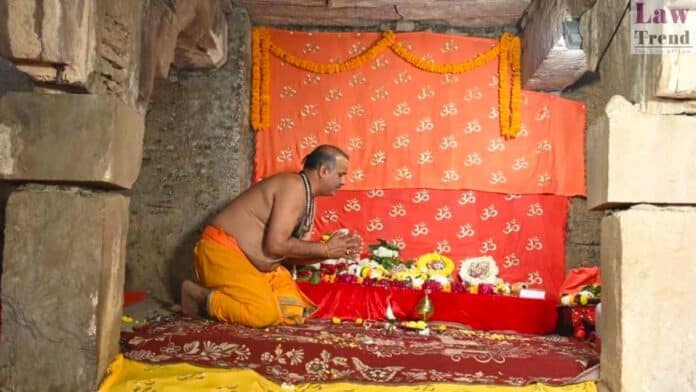In a significant legal development, the Allahabad High Court issued a ruling today concerning the Anjuman Intezamia Masjid Committee’s (AIMC) challenge to a lower court’s decision that allowed Hindu worship in a specific section of the Gyanvapi mosque.
The single judge bench of Justice Rohit Ranjan Agarwal rejected the plea of Mosque Committee’s challenge to Varanasi Court’s Order Allowing ‘Puja’ Inside Vyas Tehkhana.
As such there will be no stay on ongoing puja inside Gyanvapi.
The controversy began when the Varanasi District Court, on January 31, permitted Hindu rituals in the mosque’s southern cellar, acting on a petition by Shailendra Kumar Pathak. Pathak claimed a familial right to conduct prayers in the tahkhana, a right he traced back to his maternal grandfather, Somnath Vyas, who reportedly conducted prayers there until December 1993.
The Gyanvapi mosque, noted for its four underground cellars, became the focal point of historical and religious scrutiny following a report by the Archaeological Survey of India (ASI). Released just a day prior to the Varanasi court’s ruling, the ASI’s findings suggested that the mosque stands over a demolished Hindu temple, a claim that has stirred considerable debate.
Also Read
The mosque committee, disputing the petitioner’s claims, argued that the absence of idols in the cellar negated the possibility of any prayers having been conducted there until 1993. Despite their objections, the Supreme Court directed the committee to seek a verdict from the high court, which reserved its judgment after hearing the case on February 15.
The case has also drawn political attention, with Asaduddin Owaisi, leader of the All India Majlis-e-Ittehadul Muslimeen (AIMIM), criticizing the Varanasi court’s decision as a breach of the Places of Worship Act. Owaisi highlighted the peculiar timing of the judgment, coming from a judge on the verge of retirement, and questioned the basis of the decision given the long period since prayers were last conducted in the disputed area.




